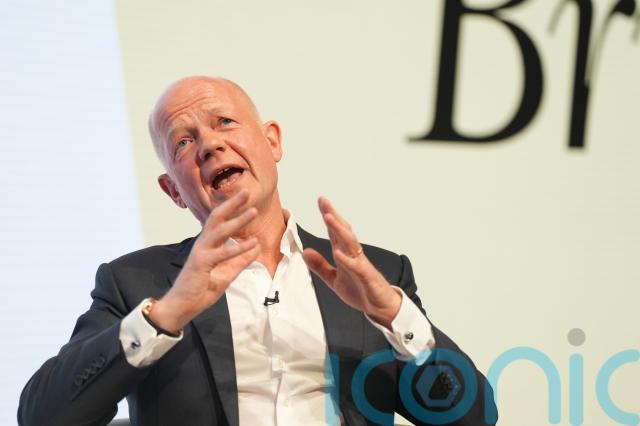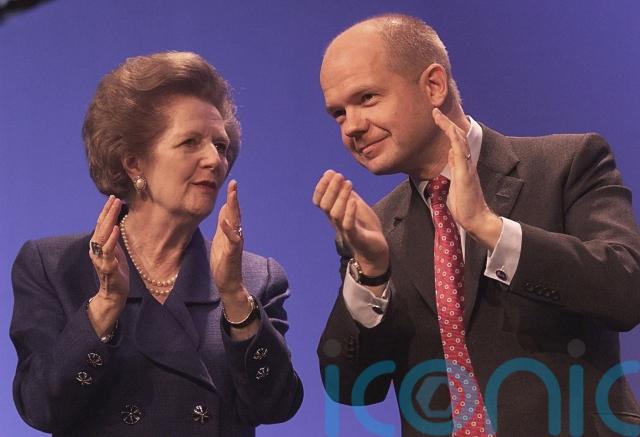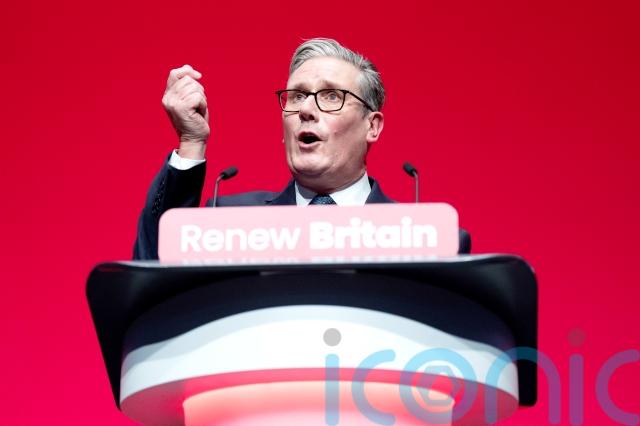
Former Conservative leader William Hague has urged Sir Keir Starmer to “be more like Margaret Thatcher” as a way of quelling debate about his leadership style and the direction of his government.
The Prime Minister has been under pressure this summer with Labour trailing behind Reform in opinion polls and some within the party uneasy about Labour’s path under his leadership.
At this year’s conference in Liverpool, Sir Keir faced challenges from Mayor of Greater Manchester Andy Burnham, his backbenchers and Labour activists.

Lord Hague said Sir Keir should study closely how Mrs Thatcher worked as she played a central role in setting the direction of travel for her Government, knowing what she wanted and how to deliver it.
“She knew where she was going, and then she knew how to get there in terms of the government system,” Lord Hague said.
“The system of government in the UK particularly depends, more than in most countries, on the head of government driving it relentlessly almost 24 hours a day.
“She drove the whole system and maybe that’s a little bit lacking in government today, I might politely say.
“She also had a political project. She wanted to, and again people can disagree with it, but she thought that the country needed a change of trajectory, particularly in its economy.
“She also had a clear philosophy but, then with that tremendous work ethic she supported, she was spectacular.”
Lord Hague became leader of the Conservatives aged 36 following Tony Blair’s historic 1997 election defeat of John Major’s Government and led the party for four years until resigning following Mr Blair’s re-election.
He previously served as Welsh Secretary in Mr Major’s Government and following the formation of the Coalition Government under David Cameron in 2010 became Foreign Secretary.

Lord Hague was asked what advice he would give the current Prime Minister.
“Be more like Margaret Thatcher, that’s very simple,” he replied.
“I honestly think he does have to explain clear facts about the country.”
He cited the difficulties the Prime Minister had with his welfare reforms this summer and a backbench rebellion from Labour MPs.
“He said belatedly it was a moral imperative to reform the welfare system because so many people are going on to sickness benefit,” he said.
“Then the Labour Party rebelled.
“But my advice to him is that you decide something is a moral imperative, you had better really explain it to the country so the next time you come up with a proposal your own party don’t squash it.
“That’s what a political leader has to do. Not just decide belatedly it’s a moral imperative and see it squashed.
“He has to prepare the ground, he has to explain the facts, and he’s not yet been very good at doing that.”
Lord Hague was speaking at the Cheltenham Literature Festival at an event to discuss his work as chancellor of the University of Oxford.
He said he disagreed with the Government’s proposed 6% levy on international students.
“You can have immigration control, that’s fine, but don’t penalise universities,” he said.
“That’s like putting a tax on one of our most successful exports. Even Donald Trump doesn’t put tariffs on his own exports, he does that on other countries’ exports.
“But our Government is proposing to put it on our exports. I think that is a mistake.”

Lord Hague said universities had got caught between changes in policy, from a more liberal approach to immigration to a now much tougher stance.
“The change where students cannot bring in dependents, I completely agree with that,” he said.
“You can’t have effective control of immigration without changing rules like that.
“But you also have to allow to the fact with higher education that these are not actual immigrants in terms of people who are coming permanently to live in the UK.
“Some of them may go on, of course, to work and prosper and add to the success of the UK.
“The vast majority are coming to buy a service in the UK and then go back to their country or another country.
“I’m not sure they should actually be counted in the immigration numbers.”
He added: “The best thing that could happen, given all the problems of funding higher education and the quite a serious crisis now for many universities, some of which are having to merge, some of which are making large redundancies, is a good long-term settlement of what we want higher education to do for the country and where the resources are going to come from.
“Then leave that be for 10 or 20 years because that really would help the sector to do far better than today.”
Subscribe or register today to discover more from DonegalLive.ie
Buy the e-paper of the Donegal Democrat, Donegal People's Press, Donegal Post and Inish Times here for instant access to Donegal's premier news titles.
Keep up with the latest news from Donegal with our daily newsletter featuring the most important stories of the day delivered to your inbox every evening at 5pm.